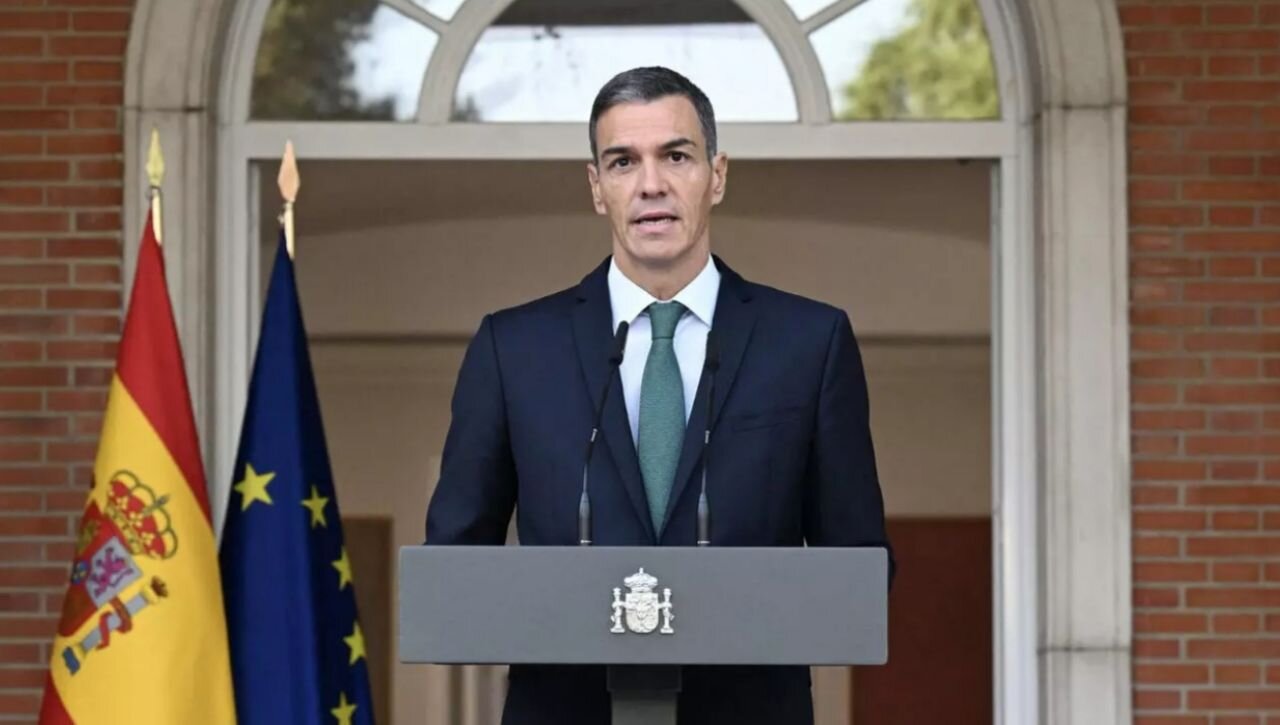Spain’s arms embargo on Israel will influence EU states, says analyst

TEHRAN- Spain has recently intensified its stance on the Israeli-Palestinian conflict by not only imposing an arms embargo on Israel and banning the shipment of military fuel through its ports and airspace but also authorizing an official investigation into Israeli war crimes in Gaza.
This bold move marks Spain as a leading European country challenging the prevailing Western approach to the Middle East, signaling a possible shift in EU foreign policy dynamics.
To better understand these developments, Tehran Times interviewed Firas Alcharani, a physician and international affairs analyst living in Spain.
Dr. Alcharani, a native of Syria, offers insights into Spain’s actions, their influence on the EU and U.S. relations, and the broader implications on Palestinian rights and regional diplomacy.
Below is the text of the interview:
Spain recently imposed an arms embargo on Israel and banned shipment of fuel to Israeli military forces by using the country’s ports or airspace. How do you interpret these moves in terms of Spain’s foreign policy priorities and its position within the European Union?
Spain’s plan is very important in stopping shipments of weapons and the contracts signed for that purpose. An additional important step has been taken to prevent the use of airports for any aircraft carrying weapons to the usurping entity, and ports for ships.
In my opinion, the next plan regarding not using American bases for aircraft carrying weapons, especially using American bases in Spain, will certainly strengthen this position. Other countries like Ireland, Slovenia, and others in the European Union will likely take similar decisions.
Considering the broader geopolitical context, how do Spain’s recent actions impact its relations with both Israel and Middle Eastern countries, including Iran and Palestine?
Regarding the relationship between Spain and Middle Eastern countries like Iran, I hope it improves. But we must not forget NATO’s position, led by the United States, in making decisions about the Iranian nuclear issue, Iran’s weapons, and missile capabilities. They consider it a threat to the existence of the usurping Zionist entity.
This will not change because they always use the pretext of the two-state solution, which is nonsense and hypocrisy. They know that the entity intended to take entire historic Palestine and establish, if possible, a "Greater Israel".
Regarding Palestine, what matters is the return of the Zionist prisoners and the end of the war without solutions that benefit the Palestinians and their right to their usurped land.
Spain has been vocal about supporting Palestinian statehood and the two-state solution. How do you assess Spain’s diplomatic move in international forums regarding the bleeding Palestine wound?
That Spain is joining legal procedures is very important; and in one way or another, it will influence EU countries. Being the second country after Ireland and the first major EU country to take such a decision to punish war criminals and those responsible for the genocide (in Gaza is very important).
From your perspective, what are the possible implications of Spain’s actions on U.S.-Spain and U.S.-EU relations, considering Washington’s strong support for Israel?
Spain will certainly face internal and external pressure because of its stance. The Spanish Zionist lobby is strong and supports right-wing parties like the People’s Party in Spain, the separatist right-wing party in Catalonia (the largest party in the Catalonian parliament), and the far-right party Vox.
They will revive previous issues, investigations, and corruption charges related to the Spanish, British, and American intelligence services to use them against the ruling party, especially Pedro Sánchez, to sway Spanish public opinion and call for early elections. America will also apply pressure through measures like customs tariffs and others.
Leave a Comment